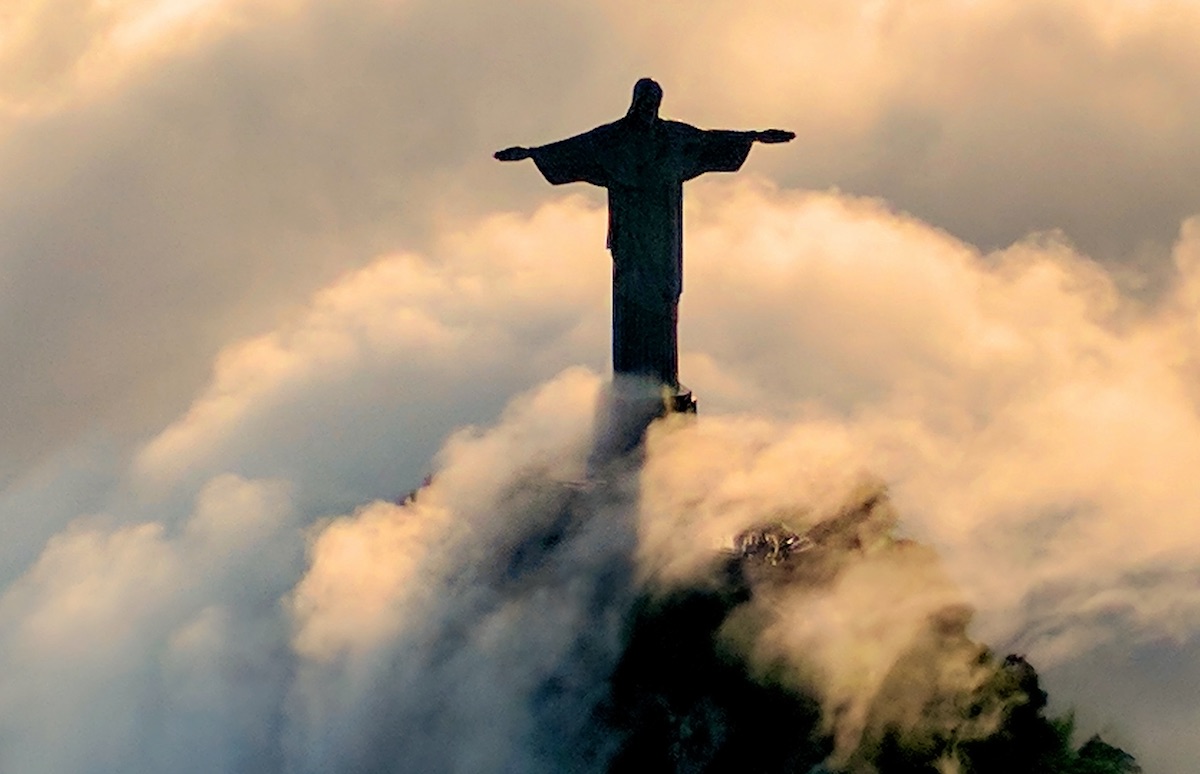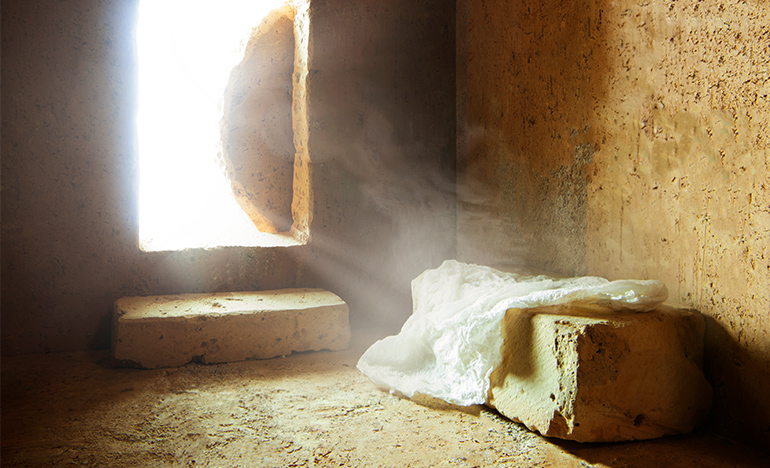+ 7th Sunday of Easter – May 24th, 2020 +
Series A: Acts 1:12-26; 1 Peter 4:12-19, 5:6-11; John 17:1-11
Beautiful Savior Lutheran
Milton, WA
Grace, mercy, and peace to you from God our Father and from our Lord and Savior Jesus Christ. Amen.
At some point or another, we’ve all walked into our backyard, garage, or a spare room in our house. You stand there for a moment overwhelmed by the project before your eyes. There’s so much to do. Where do I start?
Jesus’ High Priestly prayer, as John 17 is usually named, can seem a bit like that when we first hear it. Overwhelming. Jesus says so much. About his coming hour on the cross. His glory. His gift of eternal life for us. His constant praying for us. His relationship with the Father. His Word. His promise. His gift of faith. And the list could go on. There’s so much in this chapter it’s hard to know where to start.
But maybe you remember that old saying, “How do you eat an elephant? One piece at a time.”
How do we dive in to John 17 without being too overwhelmed? One piece at a time. For today, let’s focus our ears, eyes, hearts, and minds on one word of Jesus’ prayer. Glorify.
When Jesus had spoken these words, he lifted up his eyes to heaven, and said, “Father, the hour has come; glorify your Son that the Son may glorify you
Jesus uses this word – glorified or glory – as a verb and noun 7 times in this chapter. It is a word that is rich in old and new testament meaning. The glory of the Lord was YHWH’s visible revelation to his people Israel, his abiding, saving presence among them. The glory of the Lord in the burning bush, in the pillar of smoke and fire in the wilderness and tabernacle, the glory of the Lord that filled the temple. In the New Testament the Greek word for glory is doxa; it’s where we get the name of the famous common doxology. A hymn of praise or glory to God.
Now, when we think of the word glory or glorifying something or someone, we probably have an idea or a picture that comes into our minds of whatever it is that we think is glorious. Something admirable. Praiseworthy. A glorious victory with a gold medal around an athlete’s neck. A glorious piece of music or work of art. A glorious celebration of an anniversary or graduation.
Of course, those are all good things. They are, however, a different kind of glory or glorifying than what Jesus is praying about in John 17. Jesus isn’t talking about the glory that comes as a result of some kind of achievement, but rather the glory that he is going to accomplish on in his hour of glory on the cross. Jesus’ glory is revealed most clearly, not in ticker-tape parades, but in his lonely march to his crucifixion. Jesus is glorified in the last place we would expect God’s glory to be revealed – in Jesus’ bloody death for us on Good Friday.
You see, when God reveals or makes known his glory to us, and when Jesus is glorified for us, the thing God has in mind is the cross. That’s the hour that Jesus refers to here in John 17. The hour of his cross. The hour of his glorification. Jesus goes to cross where all shame and disgrace are poured out upon him. He hangs between two criminals. The innocent one suffers for the guilty. And in this, Jesus says, he is glorified and glorifies the Father. This is the exact opposite of what we usually think of when we think of glory or to glorify something, and yet it is exactly where God’s glory is revealed, and how Jesus is glorified. In his death on the cross for you. His crucifixion for you is what is praiseworthy and glorious.
God’s glory and God’s glorifying work is not only a noun or a verb, it is a person. It is Jesus. Jesus is glorified and glorifies the Father in all he says and does – his humble birth for us. His perfect life lived for us. His obedience of God’s law for us. His miracles and teaching recorded for us. His Word he speaks to us. His life sacrificed on the cross for us. His resurrection from the grave for us.
Jesus is God’s glory in human flesh. As John writes earlier in his Gospel: And the Word became flesh and dwelt among us, and we have seen his glory, glory as of the only Son[d] from the Father, full of grace and truth.
Jesus reveals God’s glory in his works as John 2 when changed the water into wine, John tells us he manifested, or revealed his glory. And again in John 11 when he goes to raise Lazarus from the dead, Jesus says it is to reveal his glory.
It doesn’t take too long to realize that Jesus’ definition of what it means to be glorified is far different from our own. Where we would look for selfish gain and glory in our own achievements, Jesus reveals his glory in selflessly laying down his life for us. Where we would glorify or exalt ourselves above our neighbor, Jesus is glorified by his great humility of losing his life for our sakes. Where our twisted, sinful idea of glory turns us inward on ourselves, God’s great glory and glorification of his Son on the cross turns his glory outward from the cross to you in Jesus. Where the glory of man is temporal and fades away, the glory that is in Jesus crucified for you cannot fade away.
I glorified you on earth, having accomplished the work that you gave me to do. Jesus prays.
In these gray and latter days, as we’re surrounded by death and uncertainty, by disease and despair, Jesus reveals that his greatest glory is to enter into suffering with us and for us. And not only on the cross as he did when his hour came. But also to join us in our present day suffering, to shine the glory of his death for us as we walk through this valley of the shadow of death.
Even now, he glorifies you in his Word and promise poured out upon you in Baptism. He glorifies you in his gift of eternal life, that you know the only true God and Jesus Christ whom he has sent. You are glorified in Jesus. Right now. Today. And forever.
In the Name of Jesus. Amen.
The peace of God which surpasses all understanding will guard your hearts in Christ Jesus. Amen.





